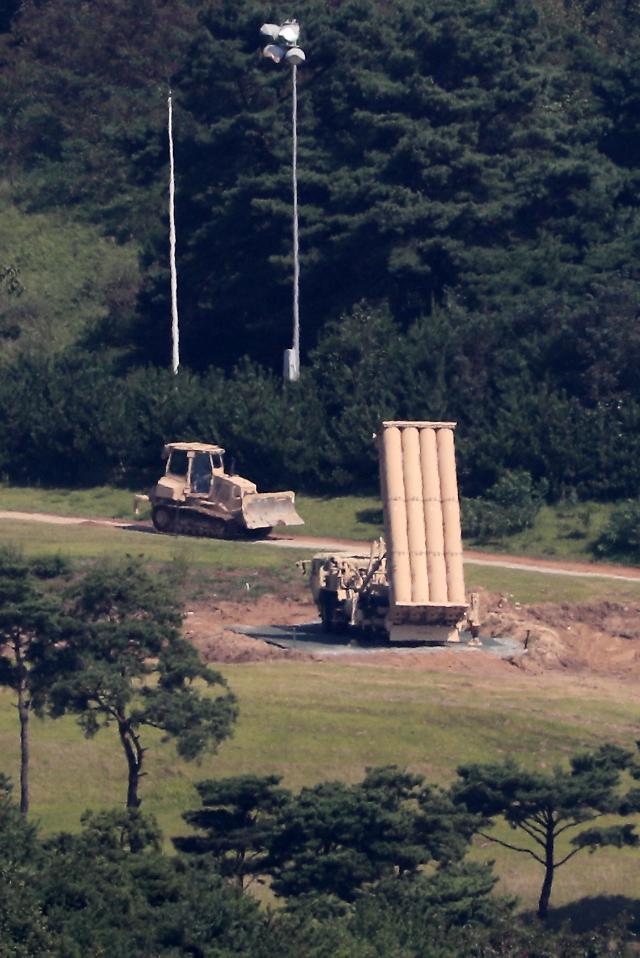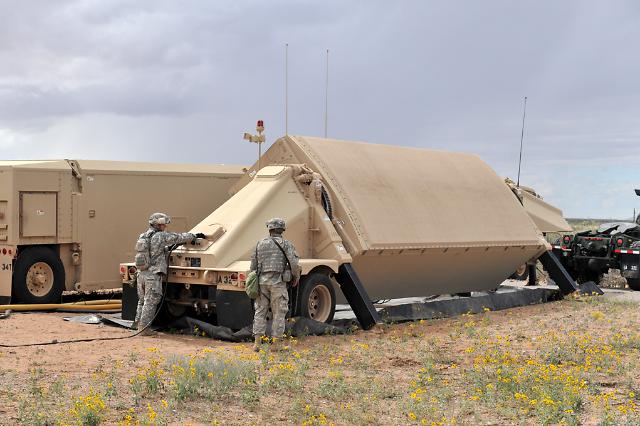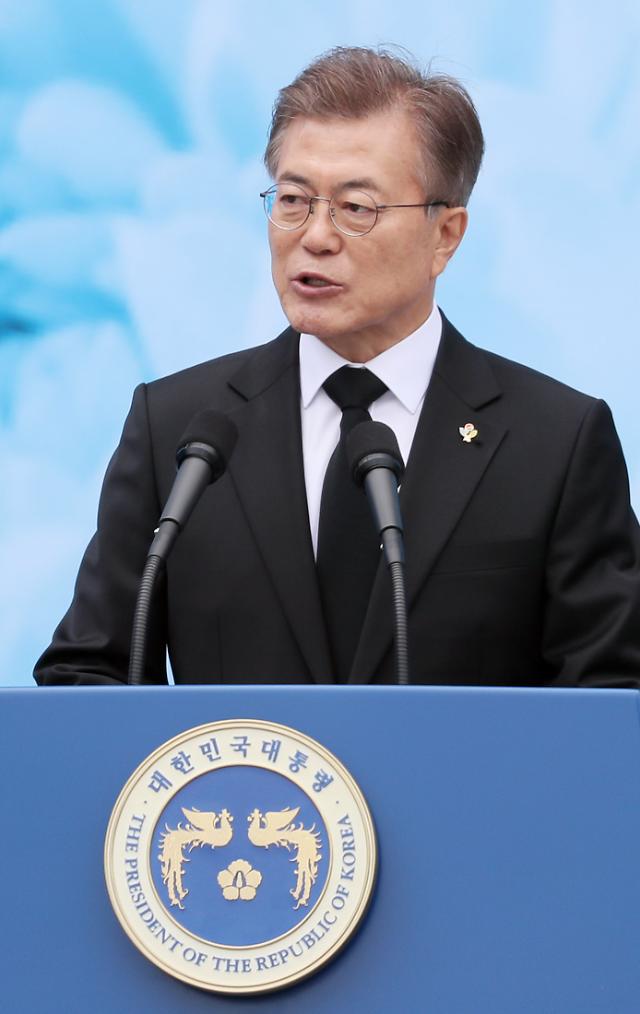
[Yonhap News Photo]
In a quick operation endorsed by President Donald Trump, US troops started deploying an advanced missile shield this week as Northeast Asia was entangled in diplomatic turmoil aggravated by North Korea's defiant launch of ballistic missiles.
Parts of a Terminal High Altitude Area Defense (THAAD) system arrived Monday night at a US air base in Pyeongtaek, 70 kilometers south of Seoul, the Defense Ministry said, adding US transport aircraft carried two launchers and some equipment.
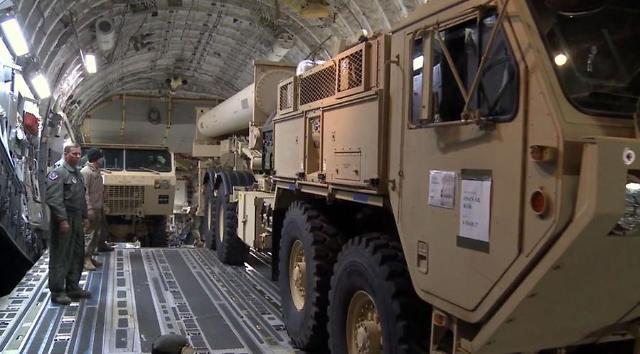
[Yonhap News Photo]
The installation of a THAAD battery will be completed in two months with US personnel and more equipment arriving gradually in South Korea, the ministry said, vowing to put the system into early operation.
The announcement came after Trump called South Korean Prime Minister Hwang Kyo-ah, who serves as acting head of state, to hold a 20-minute conversation. US and South Korean defense chief held separate security talks.
At television talks with Hwang and Japanese Prime Minister Shinzo Abe, Trump agreed to work with the allies to show North Korea "very dire consequences" for its provocative actions, the White House said.
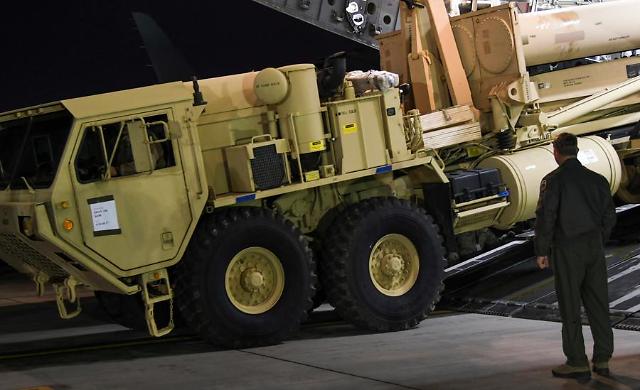
[Yonhap News Photo]
Trump emphasized Washington's "ironclad" security commitment to stand with Japan and South Korea and agreed to continue "close bilateral and trilateral cooperation to demonstrate to North Korea that there are very dire consequences for its provocative and threatening actions", it said.
"Continued provocative actions by North Korea, including Monday's launch of multiple missiles, only confirm the prudence of our alliance decision last year to deploy THAAD to South Korea," US Admiral Harry Harris who heads the US Pacific Command said in a statement.
"We will resolutely honor our alliance commitments to South Korea and stand ready to defend ourselves, the American homeland, and our allies," he said.
The THAAD row has strained relations between Asia's two major economies, but Trump revealed his strategy to bolster trilateral security ties in Northeast Asia.
Anxiety, however, is growing in South Korea over a wave of retaliatory steps taken by China in protest at the THAAD) system. Beijing claimed the system would "seriously" hurt strategic interests of China and other countries as well as the security balance in Northeast Asia.

[Yonhap News Photo]
Retaliation became conspicuous after Lotte pushed ahead with a land swap deal to let US troops install a THAAD battery in its golf course southeast of Seoul.
China is South Korea's biggest trade partner. South Korean exports to the world's second-largest economy stood at 124.5 billion US dollars last year, accounting for 25 percent of total shipments.
Along with invisible trade retaliation, Chinese state regulators have issued oral guidelines to ban the distribution of K-pop contents, dealing a blow to the dissemination of Hallyu (Korean culture wave) in China through official channels.
Chinese media censorship and trade retaliation were visible from November when South Korea was rocked by political turbulence over a corruption scandal engulfing President Park Geun-hye. Furthermore, Seoul has no effective tools or leverage to fend off the Chinese campaign.
Lim Chang-won = cwlim34@ajunews.com


